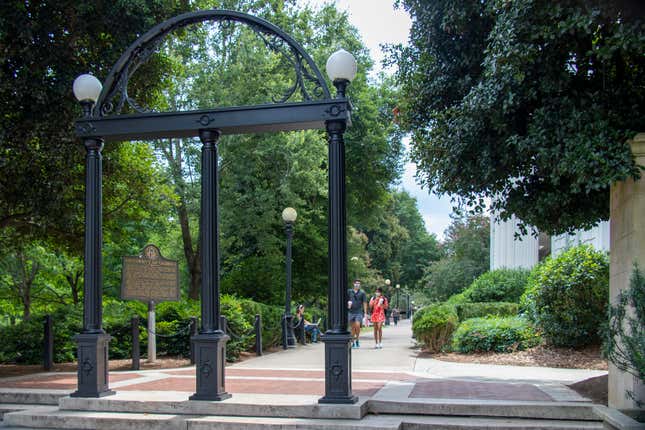
Former residents and descendants of a Black community that was literally wiped off the map to make way for parking lots at the University of Georgia want their issue to be heard.
The neighborhood was called Linnentown and it was once part of the city of Athens, which is situated just over 70 miles northeast of Atlanta. It was home to more than 50 families, many of whom owned property and businesses despite being in a rural enclave in the segregated South. Then the University of Georgia—like so many other white institutions of the era—decided it wanted the land and worked with local and state officials to push the Black residents out, using so-called urban renewal tools to do it.
Now, those who still remember Linnentown, want redress and they have at least some support from local officials, according to an NBC News report.
From NBC News
The city of Athens used eminent domain to force 50 Black families out of Linnentown on behalf of the university. The documents say the University System of Georgia acquired an urban renewal contract with the city to “clear out the total slum area which now exists off Baxter Street.” On the acquired land, the university built dorms and parking lots. The residents of Linnentown were given as little as $1,450 — about $12,000 today — for their seized properties, according to the county documents.
More than 50 years later, Whitehead and a group of fellow former residents and descendants of residents created the Linnentown Project to memorialize the lost community and urge the city to recognize and provide redress for the loss. The group was formed in 2019; by this year, Athens Mayor Kelly Girtz and the Clarke County Commission had approved a resolution in support of the effort.
However, members of the group have said that while the county is willing to make amends, University of Georgia officials have been dragging their feet.
Maybe that’s because this isn’t even the only issue related to its racist past that the school has had to deal with in the past month. In late November, the school’s board of regents rejected a proposal to change the names of 75 buildings it owns named for former slaveholders.
Go Dawgs, we guess.

